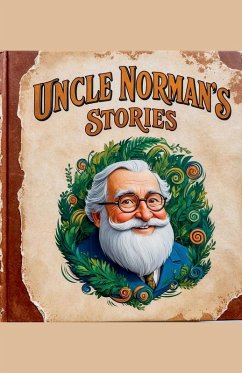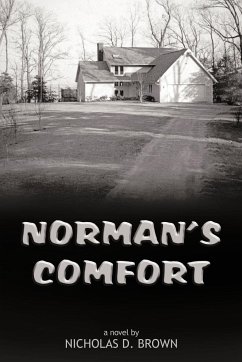
NORMAN'S COUSIN & OTHER WRITINGS
Versandkostenfrei!
Versandfertig in 1-2 Wochen
20,99 €
inkl. MwSt.

PAYBACK Punkte
10 °P sammeln!
In Singer's latest book, the engine is story-telling, but beneath the plots lurk layers of madness and magic, as well as startling, genre-busting juxtapositions. For example, two related stories, "Buying a Car" and "Selling a Car," are N.Y. City picaresques combined with technical automotive detail and the history of a marriage. Written almost three decades apart, these two stories mirror their times, from the 1970's recession to the wave of immigration that was a by-product of the war in Afghanistan. The play, "Voir, Dear," is also about an immigrant (Russian-Jewish); its themes are race, jus...
In Singer's latest book, the engine is story-telling, but beneath the plots lurk layers of madness and magic, as well as startling, genre-busting juxtapositions. For example, two related stories, "Buying a Car" and "Selling a Car," are N.Y. City picaresques combined with technical automotive detail and the history of a marriage. Written almost three decades apart, these two stories mirror their times, from the 1970's recession to the wave of immigration that was a by-product of the war in Afghanistan. The play, "Voir, Dear," is also about an immigrant (Russian-Jewish); its themes are race, justice, language, and family relationships. Race and justice are also the themes of "Simple," and family relationships are at the heart of "Norman's Cousin." The final piece in the collection, "Flagman," is about a Cuban immigrant, but the narrator is a racist and nativist. A constant note in this edgy, passionate collection is mockery of public officials. A leitmotif is the inexorable rise in the cost-of-living, as well as other important changes to life in the city. Norman's Cousin & Other Writings is full of allusions to literature and the other arts. "Simple" takes its title from Langston Hughes, and alludes to the history of rhythm-and-blues. "Carla, the Copy-Shop Girl," a satirical libretto, is an analogue to Melville's "Bartleby, The Scrivener," with echoes of Horatio Alger. "The Rented Pet" combines several genres, including local color, animal saga, and Grade-B Hollywood melodrama. As the heroine, Mildred Schapp, says when she rents the grizzled canine hero, Rex, "I like ... an older dog."














